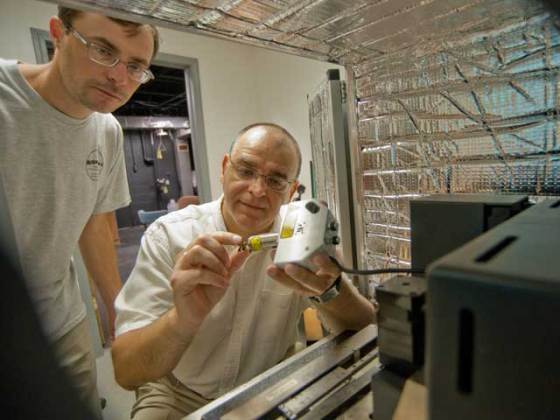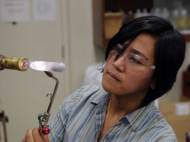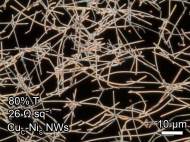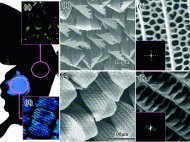Polymer extracted from seaweed may improve battery performance
 Collaboration between researchers at the Clemson University and the Georgia Institute of Technology resulted with a promising new binder material for lithium-ion battery electrodes. Known as alginate, the material is extracted from common, fast-growing brown algae, and it could boost energy storage, while eliminating the use of toxic compounds now used to manufacture the components.
Collaboration between researchers at the Clemson University and the Georgia Institute of Technology resulted with a promising new binder material for lithium-ion battery electrodes. Known as alginate, the material is extracted from common, fast-growing brown algae, and it could boost energy storage, while eliminating the use of toxic compounds now used to manufacture the components.
“Brown algae is rich in alginates and is one of the fastest growing plants on the planet”, said Igor Luzinov, a professor of Materials Science and Engineering at Clemson University. “This is a case in which we found all of the necessary attributes in one place: a material that not only will improve battery performance, but also is relatively fast and inexpensive to produce and is considerably safer than some of the materials that are being used now.”
Its extraction from seaweed is achieved through a simple soda-based (Na2CO3) process that generates a material with uniformly distributed carboxylic groups. The anodes then can be produced through an environmentally friendly process that uses a water-based slurry to suspend the silicon or graphite nanoparticles. The material may solve one of the most difficult problems limiting the use of high-energy silicon anodes.
Silicon-based anodes theoretically offer up to a tenfold capacity improvement over graphite anodes, but the ones developed thus far haven’t been stable enough for practical use. Since the volume of silicon nanoparticles changes during operation of the battery, cracks can form and allow additional electrolyte decomposition until the pores that allow ion flow become clogged, causing battery failure. Alginate is capable to bind silicon nanoparticles to each other and to the metal foil of the anode, and it also prevents degradation by since the material is capable to coat the silicon nanoparticles themselves and provide a strong support for the interface.
In tests so far, the researchers have demonstrated that the alginate can produce battery anodes with reversible capacity eight times greater compared to today’s best graphite electrodes. The anode also demonstrates a coulombic efficiency approaching 100 percent and has been operated through more than 1,000 charge-discharge cycles without failure.
“Making less-expensive batteries that can store more energy and last longer with the help of alginate could provide a large and long-lasting impact on the community”, said Gleb Yushin, an assistant professor at Georgia Institute of Technology School of Materials Science and Engineering. “These batteries could contribute to building a more energy-efficient economy with extended-range electric cars, as well as cell phones and notebook computers that run longer on battery power – all with environmentally friendly manufacturing technologies.”
According to researchers, the new alginate electrodes are compatible with existing production techniques and can be integrated into existing battery designs. In future, the researchers plan to explore other alginates, boost performance of their electrodes and understand how the material works.
For more information, read the article published in the journal Science named: “A Major Constituent of Brown Algae for Use in High-Capacity Li-Ion Batteries“.










Leave your response!